- Aging (9)
- ALS (12)
- Alzheimer's Disease (8)
- Bioengineering (31)
- Blood Diseases (52)
- Cancer (55)
- Cardiovascular Disease (25)
- Diabetes (30)
- Endocrine Disease (1)
- Eye Diseases (10)
- Fibrosis (6)
- Gastrointestinal Disease (8)
- Genetics/Epigenetics (24)
- Graft-Versus-Host Disease (1)
- Hearing Loss (5)
- Immunology (15)
- Kidney Disease (12)
- Liver Disease (6)
- Lung Disease (9)
- Multiple Sclerosis (1)
- Musculoskeletal Disease (11)
- Nervous System Diseases (40)
- Parkinson's Disease (7)
- Psychiatric Disorders (11)
- Rett syndrome (1)
- Skin Diseases (6)
- Stem Cell Biology (28)
- Stem Cell Tourism (3)
Copyright © 2024 The President and Fellows of Harvard College | Accessibility | Digital Accessibility | Report Copyright Infringement

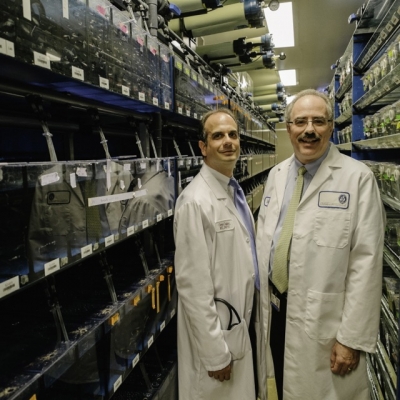 Starting with a discovery in zebrafish in 2007, Harvard Stem Cell Institute (HSCI) researchers have published initial results of a Phase Ib human clinical trial of a therapeutic that has the potential to improve the success of blood stem cell transplantation. This milestone, just nine short years after Harvard’s major commitment to stem cell biology, once again demonstrates the ability of HSCI investigators to carry a discovery from the lab bench to the clinic—fulfilling the promise on which the Institute was founded....
Starting with a discovery in zebrafish in 2007, Harvard Stem Cell Institute (HSCI) researchers have published initial results of a Phase Ib human clinical trial of a therapeutic that has the potential to improve the success of blood stem cell transplantation. This milestone, just nine short years after Harvard’s major commitment to stem cell biology, once again demonstrates the ability of HSCI investigators to carry a discovery from the lab bench to the clinic—fulfilling the promise on which the Institute was founded.... 

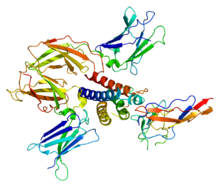 HSCI investigators have developed a better picture of why a recently discovered therapy for graft-versus-host disease (GVHD) is more effective than anything currently available to patients.
HSCI investigators have developed a better picture of why a recently discovered therapy for graft-versus-host disease (GVHD) is more effective than anything currently available to patients.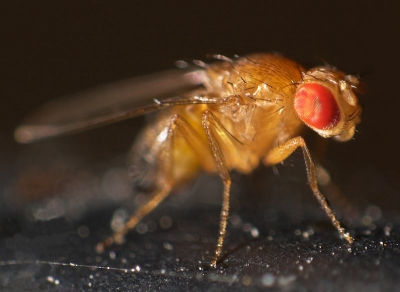 Like humans, fruit flies are diurnal animals. They wake at dawn, eat what they can find, and sleep at dusk. This twenty-four-hour routine, called a circadian rhythm, is controlled by the sun’s light-dark cycle. The clock is set so a fly, or human, is primed to be active during the day and...
Like humans, fruit flies are diurnal animals. They wake at dawn, eat what they can find, and sleep at dusk. This twenty-four-hour routine, called a circadian rhythm, is controlled by the sun’s light-dark cycle. The clock is set so a fly, or human, is primed to be active during the day and...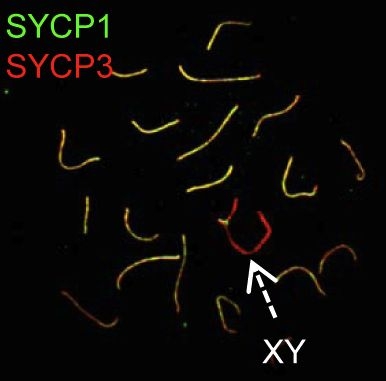 Harvard Stem Cell Institute (HSCI) researchers have found a link between male infertility and a mutation in a gene critical for sperm production. If the gene, Elongator Protein 1/Inhibitor of KappaB Kinase-associated Protein (Elp1/IKAP), is turned off, male germ cells – which give rise to sperm – encounter...
Harvard Stem Cell Institute (HSCI) researchers have found a link between male infertility and a mutation in a gene critical for sperm production. If the gene, Elongator Protein 1/Inhibitor of KappaB Kinase-associated Protein (Elp1/IKAP), is turned off, male germ cells – which give rise to sperm – encounter...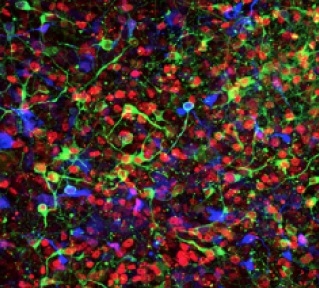 HSCI scientists have developed new ways to identify, grow, sort, and transplant the dopamine-producing cells that are lost in
HSCI scientists have developed new ways to identify, grow, sort, and transplant the dopamine-producing cells that are lost in 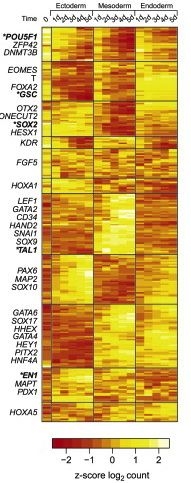 New data showing human embryonic stem cell gene expression and epigenetic activity (e.g., tagging DNA to silence specific genes) reveals that stem cells prepare early to differentiate into their next form. The research, led by HSCI Principal Faculty member...
New data showing human embryonic stem cell gene expression and epigenetic activity (e.g., tagging DNA to silence specific genes) reveals that stem cells prepare early to differentiate into their next form. The research, led by HSCI Principal Faculty member...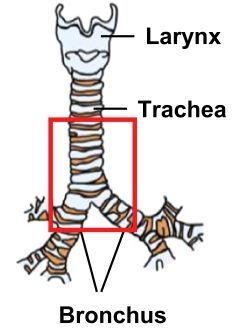 HSCI investigators have determined which of the three types of airway cells are primarily responsible for excess mucous production in pulmonary diseases such as asthma, cystic fibrosis, and bronchitis, hastening the day when it may be possible to develop treatments.
HSCI investigators have determined which of the three types of airway cells are primarily responsible for excess mucous production in pulmonary diseases such as asthma, cystic fibrosis, and bronchitis, hastening the day when it may be possible to develop treatments.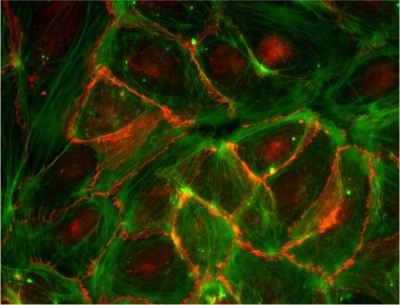 In a scientific first, HSCI scientists have successfully grown the cells that line the blood vessels—called vascular endothelial cells—from human induced pluripotent stem cells (iPSCs), revealing new details about how these cells function. Using a unique approach, the researchers...
In a scientific first, HSCI scientists have successfully grown the cells that line the blood vessels—called vascular endothelial cells—from human induced pluripotent stem cells (iPSCs), revealing new details about how these cells function. Using a unique approach, the researchers...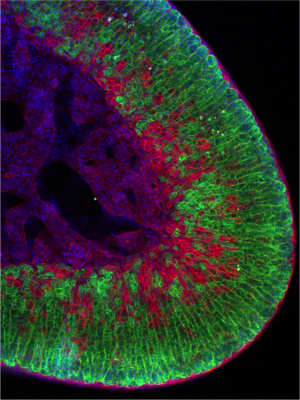 In 2006,
In 2006,  Harvard Stem Cell Institute (HSCI) scientists have identified a new therapeutic approach for treating
Harvard Stem Cell Institute (HSCI) scientists have identified a new therapeutic approach for treating